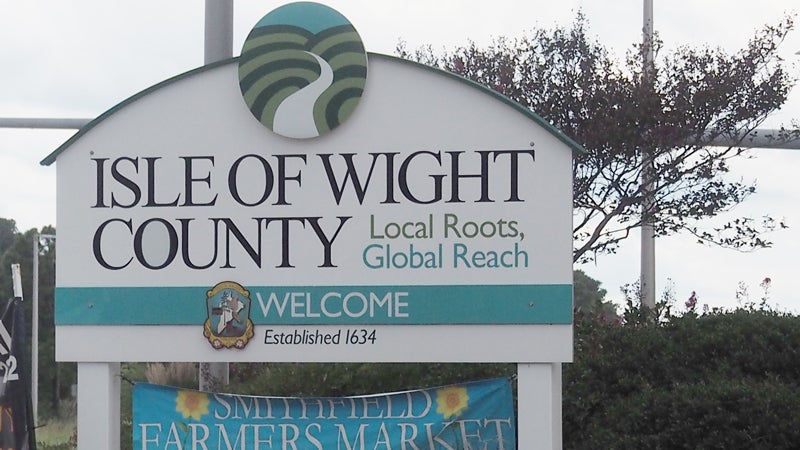Isle of Wight proposing $108.9 million budget, 5-cent real estate tax increase
Published 4:54 pm Friday, April 5, 2024

- FIle photo
Isle of Wight County Administrator Randy Keaton’s proposed $108.9 million budget for the 2024-25 fiscal year calls for a 5-cent increase in the county’s real estate tax rate.
County supervisors reduced the rate in 2023 from 85 cents per $100 in assessed value to the current 71-cent rate to lessen the increase homeowners would see on their tax bills from last year’s reassessment of property values. Single-family home valuations rose 34% on average since the county’s prior assessment in 2019, and some residents reported their valuations having more than doubled.
A $300,000 house whose owners paid $2,550 in taxes in 2022 based on the 85-cent rate and 2019 valuations in place at the time would have owed $300 more in 2023 based on the new, 34% higher $402,000 valuation and 71-cent rate. That same house would be assessed $3,055 in taxes, or another $200 more, this year under the proposed 76-cent rate.
To avoid a repeat of the sticker shock come 2027, Commissioner of the Revenue Gerald Gwaltney is proposing to increase the frequency of reassessments from the state-required four-year minimum to two years.
Gwaltney said the two-year “desktop review” would assess sales in each of the county’s 181 defined neighborhoods and adjust the tax value of each home accordingly based on those sales. According to Keaton, single-family home prices in Isle of Wight are already 7% higher on average than the 2023 assessments that took effect in July.
According to Keaton’s budget proposal, Isle of Wight would still have the third lowest real estate tax rate in Hampton Roads. Only Surry, which currently charges 71 cents per $100, and York County, which is proposing to reduce its rate to 74 cents, would be lower than Isle of Wight.
The $108.9 million in proposed revenue and expenses equates to a $13.4 million, or 14%, increase over the $95.5 million budget county supervisors adopted last May for the current year.
Isle of Wight County’s School Board, on March 26, voted to adopt a $102 million budget for the coming 2024-25 school year that asked for a roughly $9 million increase from county supervisors. The request included a $5 million increase for annual operating costs plus nearly $4 million for several costly one-time expenses.
Keaton, however, is proposing only a $3 million increase for the school division’s operating costs. The amount is intended to cover the division’s share of the 3% salary increases for school employees included in the Virginia General Assembly’s 2024-26 biennial budget, which has yet to be signed by Gov. Glenn Youngkin, plus increases in health insurance and maintenance contract costs. The amount would not cover any of the more than 20 new employees Isle of Wight County Schools Superintendent Theo Cramer has requested, nor Cramer’s proposal to purchase five new school buses annually.
Keaton has further proposed a $4 million transfer from the county’s unassigned fund balance to fund school-related and non-school one-time expenses. The non-school projects total $1.5 million, Keaton said.
The School Board’s budget seeks 10 new buses, five funded as part of an annual replacement schedule. The other five, which the School Board included as one-time expenses, are intended to get the division back on track with its replacement schedule. According to division officials, roughly a third of the division’s 65 buses have reached the 15-year lifespan and mileage limit when it’s customary to begin looking at replacement.
The county’s budget shows a $715,000 increase in debt service payments, none of which are tied to the school division’s one-time funding requests, according to Keaton.
Keaton said the increase is due to several factors, including an increase in lease payments for vehicles, a recalculation of the county’s debt service reserve and an accounting change in how Isle of Wight calculates debt payments.
Editor’s note: This story is updated with additional details on the proposed $4 million transfer to fund one-time expenses.





